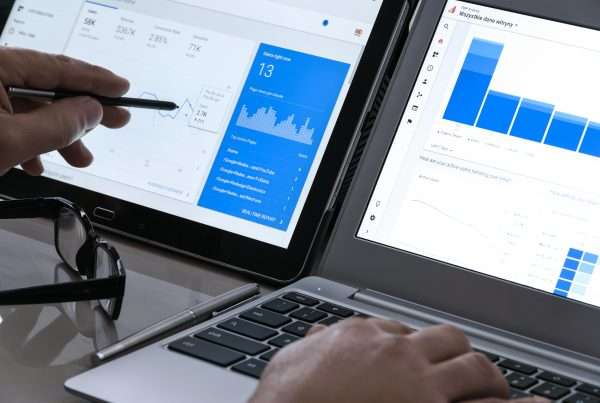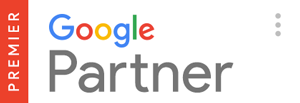The legendary Leonard Cohen once gave his nephew advice about dating women, “Listen well, then listen some more, and when you think you’re done listening listen some more.”
He was probably right on the money in regards to relationships, but he’s got a point as it relates to paid search as well. Google offers a variety of lesser-utilized products to help those in the paid media business better serve their clients or themselves. In order to create that elusive unicorn ad copy with perfect keywords and relevancy, listen to the data again even when you think you’ve heard enough.
Utilizing lesser known research tools such as Google Trends and Google Correlate as tools for lateral keyword research might allow for a lower cost-per-click than you’ve anticipated. Consumer psychology is just as relevant to keyword selection as it is to traditional advertising. Ideas, communities, even products can be linked in ways that aren’t totally visible upon first glance.
Using Google Correlate, I ran my own monthly time series comparing the term “Wrapping Paper.” The graphics below show the results of search terms from users in 2016 that correlate with their searches for wrapping paper during the same time period. The second chart shows a consumer looking for wrapping paper is highly likely to be interested in hiring a Christmas caterer in the same time period. This information is useful for the owner of a catering company who is thinking about seasonal keywords to bid on in and around his industry.


Bidding on a keyword like “wrapping paper” as a caterer around Christmas is actually intuitive if you visualize holiday advertising as a traditional grocery store aisle where brands compete to be on the very middle of the shelves. If you’re wandering down the pasta aisle you may find yourself suddenly looking at a strainer, or spaghetti sauce since it’s a correlated purchase.
Take the terms that Correlate produced around “wrapping paper” and plug them into Trends for a comparison. “Christmas dinner” begins to trend in mid-November and follows a similar growth arc as “wrapping paper” and “gingerbread house” up until the week of Christmas. Trends offers a confirmation for the Correlation results, bidding on different keywords across a Christmas theme can be effective marketing.

Building a keyword bidding strategy based on Correlate or Trends data offers flexibility around expensive keywords. For instance, Correlate tells us there is a strong correlation between searches for personal injury attorneys, but if you’re an attorney on a budget, a 0.79 cent bid on HOA Lien could generate business with massive savings on spend.

Let’s check back in with Trends to confirm the Correlate assertion that “hoa lien” keywords are worth bidding on for a personal injury attorney. I checked the trends over the past 90 days.

The two search terms are certainly linked. As hoa liens become more prevalent, searches for personal injury attorneys experience similar growth. Identifying industry trends has always been a must in advertising, why should identifying correlating trends be any different? For every action, a reaction and for every purchasing decision there is likely a separate purchase that accompanies it.
Trends and Correlate should supplement rather than replace your traditional keyword research, but can serve as legitimate options to create new conversion streams.
I should mention two important caveats – Google Correlate doesn’t display traditional search volume results. Just like Trends, it is based on share of total volume. All terms are relative to each other, so regular keyword research is still essential in your process.
Equally important to consider- correlation does not equal causation. Two terms that correlate with each other don’t necessarily share a causal relationship. It’s important to note that some of the results produced will be irrelevant to your research, but the opportunity to find a diamond in the rough is there.
Storytelling, or the “buyer mapping journey” is a complicated procedure in the paid search portion of the industry, which can often be dominated by statistics and probabilities. Using Correlate provides important plot structure to your story, offering key character development which helps your clients better understand their potential customers.
Let’s revisit our wrapping paper Correlate search set from earlier, the one who was also curious about hiring a Christmas caterer. From the Correlate results we can sketch a mental image of what this consumer probably looks like. Statistically speaking, it’s most likely a mother in the process of making a December holiday plan for her family. The plan probably includes larger, more expensive activities along the lines of a catered dinner, or traveling. She might also be making smaller plans such as church or making a gingerbread house with the kids. A marketer needs to reach this mother in early December, if not late November, to get her attention in time for her holiday plans.

Mapping the customer’s purchase journey puts you a step ahead of both the consumer, and also the competition. Use Correlate and a bit of common sense to begin mapping out consumer interests relevant to your business. Note that “Christmas beach” is present in the Correlated searches, is there an opportunity for a tropical resort to bid on keywords that will present ads to the stressed out parent tired of planning for the holidays who might consider packing the family up for a stress free vacation? The customer journey map can be altered, even rewritten, by marketers with the right tools and insight.
Purchase journey mapping doesn’t have to be a retroactive process or a blind shot in the dark. Traditional advertising can feel a lot like a child swinging a bat at a piñata, hoping they’re pointed in the right direction to swing. Google Search results make sure we’re standing in front of the piñata and show us its most vulnerable spots to aim for.
The information and the necessary tools are at our disposal, the onus is ours to weed through the data and utilize it.








